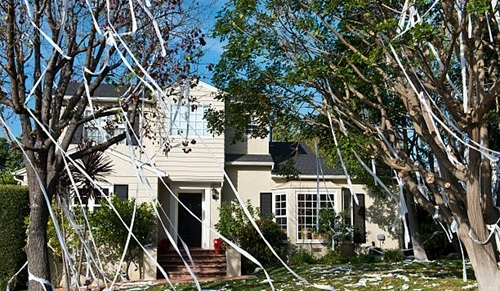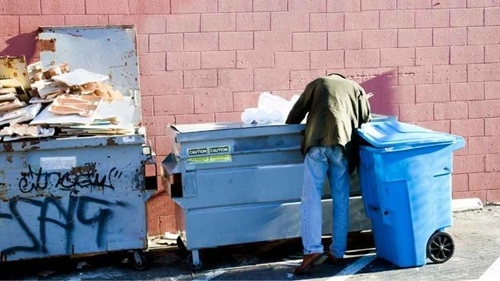Yes, in most cases, it is illegal to TP (toilet paper) a house. While some people view it as a harmless prank, TPing can violate laws related to trespassing, vandalism, or littering. Depending on the jurisdiction and circumstances, it can lead to fines, criminal charges, or civil liability.
What Is TPing?
TPing involves throwing toilet paper rolls over a house, trees, or property, often as a prank. While the act may seem lighthearted, it can result in property damage, cleanup costs, and legal issues if done without the homeowner’s consent.

Legal Framework for TPing a House
Trespassing Laws
Trespassing is entering or remaining on someone’s property without permission. By entering private property to TP a house, individuals may be violating trespassing laws.
- California Penal Code Section 602: Prohibits unauthorized entry onto private property.
- Texas Penal Code Section 30.05: Classifies trespassing as a misdemeanor.
Vandalism Laws
If TPing causes damage to property, it may be considered vandalism.
- Florida Statutes Section 806.13: Defines vandalism as willfully damaging or defacing property, which can include harm to landscaping or structures during TPing.
- New York Penal Law Article 145: Prohibits intentional damage to property and classifies it as criminal mischief.
Littering Laws
Even if TPing does not cause damage, the act of leaving toilet paper on someone else’s property can violate littering laws. Many municipalities have ordinances against dumping or littering on private or public property.
Public Nuisance
If the act disrupts the peace, such as occurring late at night, it may also fall under laws against disturbing the peace or creating a public nuisance.
Penalties for TPing a House
1. Fines:
- Fines for trespassing, vandalism, or littering range from $50 to $5,000, depending on the jurisdiction and severity of the offense.
2. Community Service:
- Judges often require offenders to perform community service, particularly for first-time or juvenile offenders.
3. Criminal Charges:
- Misdemeanor Charges: Most TPing incidents are treated as misdemeanors, but they can escalate to felonies if significant property damage occurs.
- Juvenile Court: Minors involved in TPing may face proceedings in juvenile court, with consequences like counseling or probation.
4. Restitution:
- Offenders may be required to pay for cleanup costs or repair any damage caused during the act.
5. Civil Liability:
- Property owners can file lawsuits for damages or cleanup costs, even if the act doesn’t result in criminal charges.
When Is TPing Considered Harmless?
TPing is generally considered harmless if:
1. Permission Is Granted: If the homeowner consents to the prank, it’s unlikely to result in legal issues.
2. No Property Damage: If there’s no damage or significant cleanup required, enforcement may be lenient.
3. Friendly Context: TPing among friends or during events like Halloween is less likely to escalate legally, though it is still risky.
Risks and Concerns
Even if intended as a prank, TPing can have unintended consequences:
1. Property Damage: Wet or sticky toilet paper can damage paint, gutters, or trees.
2. Environmental Impact: Toilet paper left outdoors can harm the environment, especially in areas with protected wildlife.
3. Escalation of Pranks: What starts as harmless fun can escalate into retaliatory pranks or disputes.
Recent Cases and Legal Updates
1. California, 2023: A group of teens was fined $500 each for TPing a neighbor’s house during Halloween. The judge also required them to perform 20 hours of community service for littering.
2. Florida, 2024: A homeowner pressed charges against individuals who damaged landscaping while TPing their property, leading to misdemeanor vandalism charges.
3. Texas, 2024: Police issued warnings to a group of juveniles caught TPing a house, emphasizing the risks of trespassing and littering.
Common FAQs
Q1. Is TPing always illegal?
Ans: Yes, TPing is generally illegal if done without the property owner’s consent. It can violate laws on trespassing, vandalism, and littering.
Q2. Can minors be charged for TPing?
Ans: Yes, minors can face charges in juvenile court for TPing. They may also be required to perform community service or pay restitution.
Q3. What if TPing doesn’t cause damage?
Ans: Even if no damage occurs, TPing can still result in littering or trespassing charges, depending on local laws.
Q4. What should I do if my house is TP’d?
Ans: Contact local law enforcement if significant damage occurs or if you suspect malicious intent. For minor incidents, you can clean up and avoid escalation.
Q5. Are there safer alternatives to TPing as a prank?
Ans: Yes, consider non-destructive pranks, such as yard decorations, that won’t damage property or lead to legal issues.
Conclusion
While TPing a house might seem like harmless fun, it is illegal in most cases and can lead to fines, community service, or even criminal charges. To avoid legal trouble, always seek consent from property owners before engaging in pranks and consider alternatives that don’t involve property damage or cleanup. Respecting others’ property helps ensure that pranks remain fun and lighthearted rather than contentious or harmful.

